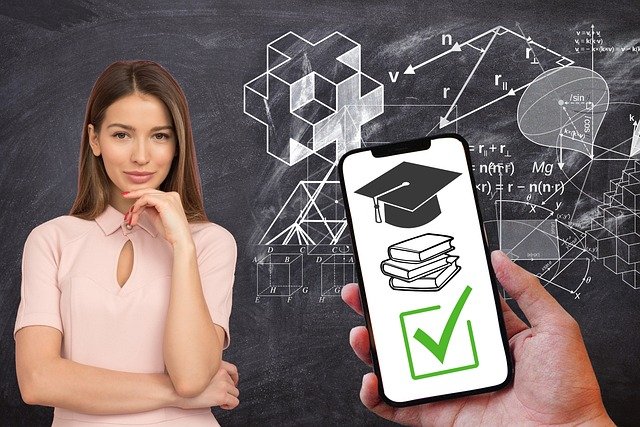AI Courses in Japan: What to Know Before Starting Your Learning Journey in 2025
As AI adoption grows across industries in Japan, so does the demand for practical, career-focused education. From online courses with certification to university-level training and hands-on deep learning workshops, the range of AI learning options is expanding rapidly. Whether you're an engineer looking to sharpen your skills, a professional exploring a career shift, or someone seeking remote, part-time study—Japan offers a variety of programs tailored to different goals. But not all courses are created equal. Understanding what’s available, what’s credible, and what actually helps you apply AI in real-world settings is key to choosing the right path forward.

What AI certification programs are available in Japan?
Japan boasts a growing number of AI certification programs catering to different skill levels and career goals. Many of these programs are designed to meet industry standards and provide practical, hands-on experience. Some popular certification options include:
-
Japan Deep Learning Association (JDLA) Certifications: Offering both general and expert-level certifications in deep learning.
-
Google Cloud Certified - Professional Machine Learning Engineer: While not Japan-specific, this globally recognized certification is highly valued in the Japanese tech industry.
-
IBM AI Engineering Professional Certificate: A comprehensive program covering various aspects of AI and machine learning.
-
Microsoft Certified: Azure AI Engineer Associate: Focused on AI solutions using Microsoft Azure, which is widely used in Japanese businesses.
When choosing a certification program, consider its recognition within Japan’s tech industry and alignment with your career aspirations.
What are the common machine learning and deep learning course formats?
AI courses in Japan come in various formats to accommodate different learning styles and schedules. Common course formats include:
-
University Degree Programs: Full-time bachelor’s and master’s degrees in AI, machine learning, or related fields offered by Japanese universities.
-
Online Courses: Platforms like Coursera, edX, and Udacity offer courses from top Japanese and international universities, often with flexible scheduling.
-
Bootcamps: Intensive, short-term programs focusing on practical skills and project-based learning.
-
Corporate Training: Many companies in Japan offer in-house AI training programs for their employees.
-
Workshops and Seminars: Short, focused sessions on specific AI topics or technologies, often led by industry experts.
Each format has its advantages, so consider your learning preferences, time constraints, and career goals when choosing.
What remote and part-time AI study options exist for working professionals?
For working professionals in Japan, balancing career and education can be challenging. Fortunately, there are several remote and part-time AI study options available:
-
Online Self-Paced Courses: Platforms like Coursera and edX offer flexible, self-paced AI courses from top universities worldwide.
-
Evening and Weekend Classes: Some Japanese universities and coding bootcamps offer part-time AI programs with classes scheduled outside typical work hours.
-
Blended Learning Programs: These combine online learning with occasional in-person workshops or seminars, providing flexibility with hands-on experience.
-
MOOCs (Massive Open Online Courses): Free or low-cost online courses from platforms like FutureLearn or Japan’s own JMOOC, offering flexibility and a wide range of AI-related topics.
-
Corporate-Sponsored Programs: Some Japanese companies partner with educational institutions to provide employees with part-time AI training opportunities.
These options allow professionals to upgrade their AI skills without leaving their current jobs, making them increasingly popular in Japan’s competitive tech landscape.
AI bootcamps vs. university courses: what’s the difference?
When choosing between AI bootcamps and university courses in Japan, it’s essential to understand their key differences:
| Aspect | AI Bootcamps | University Courses |
|---|---|---|
| Duration | Typically 3-6 months | 1-4 years (depending on degree) |
| Focus | Practical, job-ready skills | Comprehensive theoretical and practical knowledge |
| Flexibility | Often more flexible, with part-time and online options | Generally more structured, with some flexibility in graduate programs |
| Cost | Usually less expensive than full degree programs | Higher cost, especially for full-time degree programs |
| Recognition | Growing industry recognition, but varies | Widely recognized academic credentials |
| Networking | Limited to bootcamp cohort and alumni | Extensive academic and industry connections |
| Research Opportunities | Limited | Abundant, especially in graduate programs |
Prices, rates, or cost estimates mentioned in this article are based on the latest available information but may change over time. Independent research is advised before making financial decisions.
How to choose the right AI course for your career goals
Selecting the ideal AI course in Japan requires careful consideration of your career objectives. Here are some steps to guide your decision:
-
Assess Your Current Skills: Determine your starting point in AI and machine learning to choose an appropriate level.
-
Define Your Career Goals: Identify specific roles or industries you’re targeting to align your course selection.
-
Research Industry Trends: Stay informed about the most in-demand AI skills and technologies in Japan’s job market.
-
Consider Time and Financial Commitments: Evaluate your availability and budget to find a suitable program format.
-
Check Accreditation and Recognition: Ensure the course or certification is valued by potential employers in Japan.
-
Review Course Content: Look for programs that cover relevant technologies and offer practical, hands-on experience.
-
Explore Alumni Outcomes: Research the career paths of previous students or graduates from the programs you’re considering.
By carefully weighing these factors, you can select an AI course that not only enhances your skills but also aligns with your long-term career aspirations in Japan’s evolving AI landscape.
As AI continues to transform industries across Japan, investing in the right education is crucial for staying competitive. Whether you opt for a comprehensive university program, a focused bootcamp, or flexible online courses, the key is to choose a learning path that aligns with your goals and the demands of Japan’s AI job market in 2025 and beyond.




